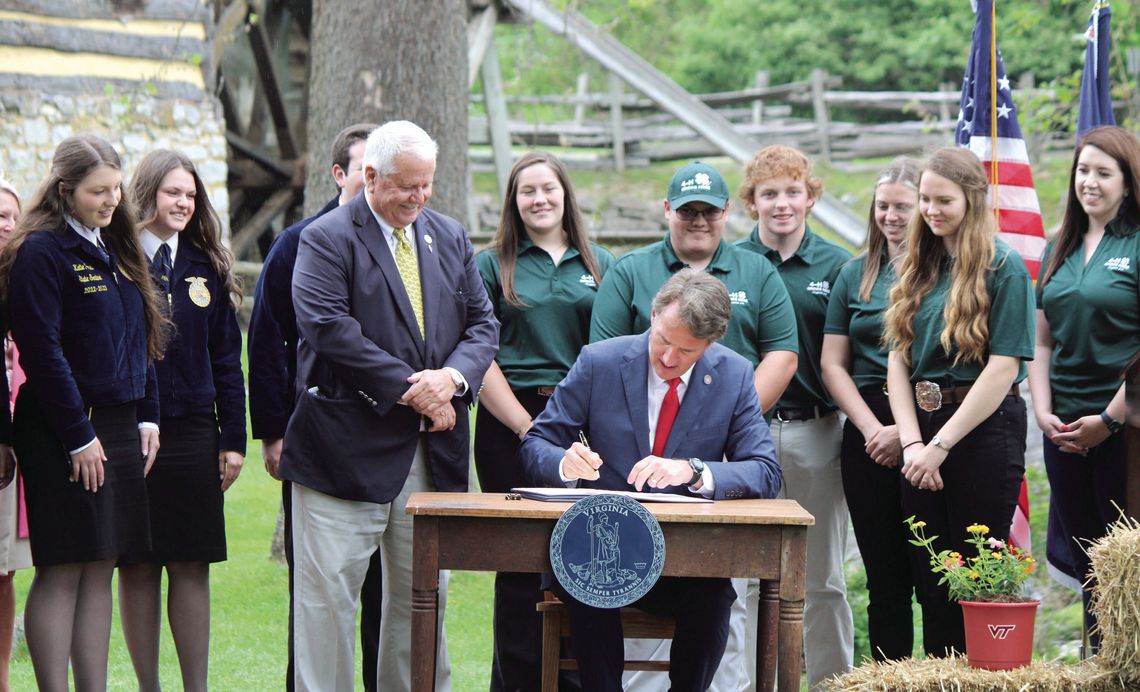Last Tuesday afternoon, Gov. Glenn Youngkin and other members of the state government gathered at the McCormick farm in Raphine to sign two agriculture bills into law.
PLEASE LOG IN FOR PREMIUM CONTENT. Our website requires visitors to log in to view the best local news.
Not yet a subscriber? Subscribe today!



